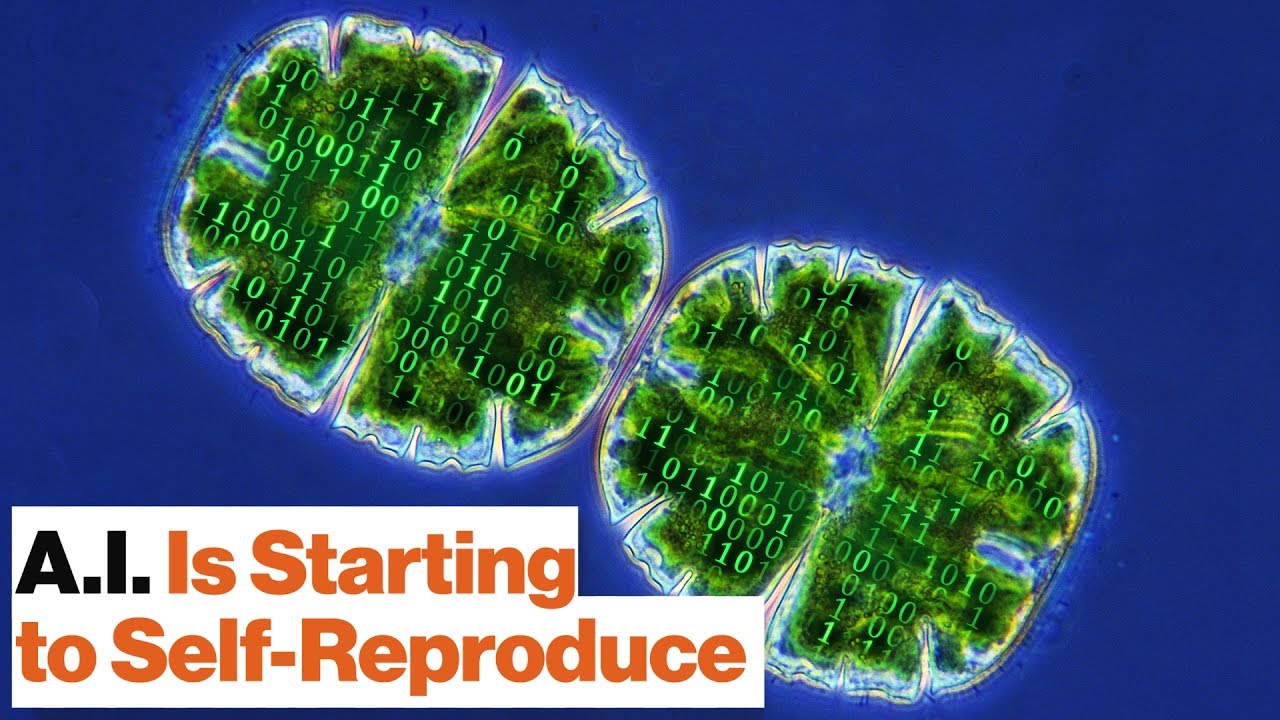Difference between revisions of "AI Can Now Self-Reproduce - Should Humans Be Worried (YouTube Content)"
| Line 1: | Line 1: | ||
{{Stub}} | |||
{{InfoboxAppearance | {{InfoboxAppearance | ||
|title=AI Can Now Self-Reproduce—Should Humans Be Worried? | |title=AI Can Now Self-Reproduce—Should Humans Be Worried? | ||
| Line 26: | Line 27: | ||
|next=Capitalism 2.0 Will Include a Healthy Dose of Socialism (YouTube Content) | |next=Capitalism 2.0 Will Include a Healthy Dose of Socialism (YouTube Content) | ||
}} | }} | ||
'''AI Can Now Self-Reproduce—Should Humans Be Worried?''' was a video with [[Eric Weinstein]] on Big Think. | '''AI Can Now Self-Reproduce—Should Humans Be Worried?''' was a video with [[Eric Weinstein]] on Big Think. | ||
Revision as of 17:02, 28 June 2021
| AI Can Now Self-Reproduce—Should Humans Be Worried? | |

| |
| Information | |
|---|---|
| Guest(s) | Eric Weinstein |
| Length | 00:05:30 |
| Release Date | 22 May 2017 |
| Links | |
| YouTube | Watch |
| Portal Blog | Read |
| All Appearances | |
AI Can Now Self-Reproduce—Should Humans Be Worried? was a video with Eric Weinstein on Big Think.
Description
Those among us who fear world domination at the metallic hands of super-intelligent AI have gotten a few steps ahead of themselves. We might actually be outsmarted first by fairly dumb AI, says Eric Weinstein. Humans rarely create products with a reproductive system—you never have to worry about waking up one morning to see that your car has spawned a new car on the driveway (and if it did: cha-ching!), but artificial intelligence has the capability to respond to selective pressures, to self-replicate and spawn daughter programs that we may not easily be able to terminate. Furthermore, there are examples in nature of organisms without brains parasitizing more complex and intelligent organisms, like the mirror orchid. Rather than spend its energy producing costly nectar as a lure, it merely fools the bee into mating with its lower petal through pattern imitation: this orchid hijacks the bee's brain to meet its own agenda. Weinstein believes all the elements necessary for AI programs to parasitize humans and have us serve its needs already exists, and although it may be a "crazy-sounding future problem which no humans have ever encountered," Weinstein thinks it would be wise to devote energy to these possibilities that are not as often in the limelight.
ERIC WEINSTEIN:
Eric Weinstein is an American mathematician and economist. He earned his Ph.D in mathematical physics from Harvard University in 1992, is a research fellow at the Mathematical Institute of Oxford University, and is a managing director of Thiel Capital in San Francisco. He has published works and is an expert speaker on a range of topics including economics, immigration, elite labor, mitigating financial risk and incentivizing of creative risks in the hard sciences.
Transcript
This content does not yet have an edited transcript. The Portal Group's Transcript Completion Project generates transcripts for content related to Eric Weinstein and The Portal Podcast. If you would like to contribute, contact Aardvark or Brooke on The Portal Group Discord Server for access to this content's machine-generated transcript.